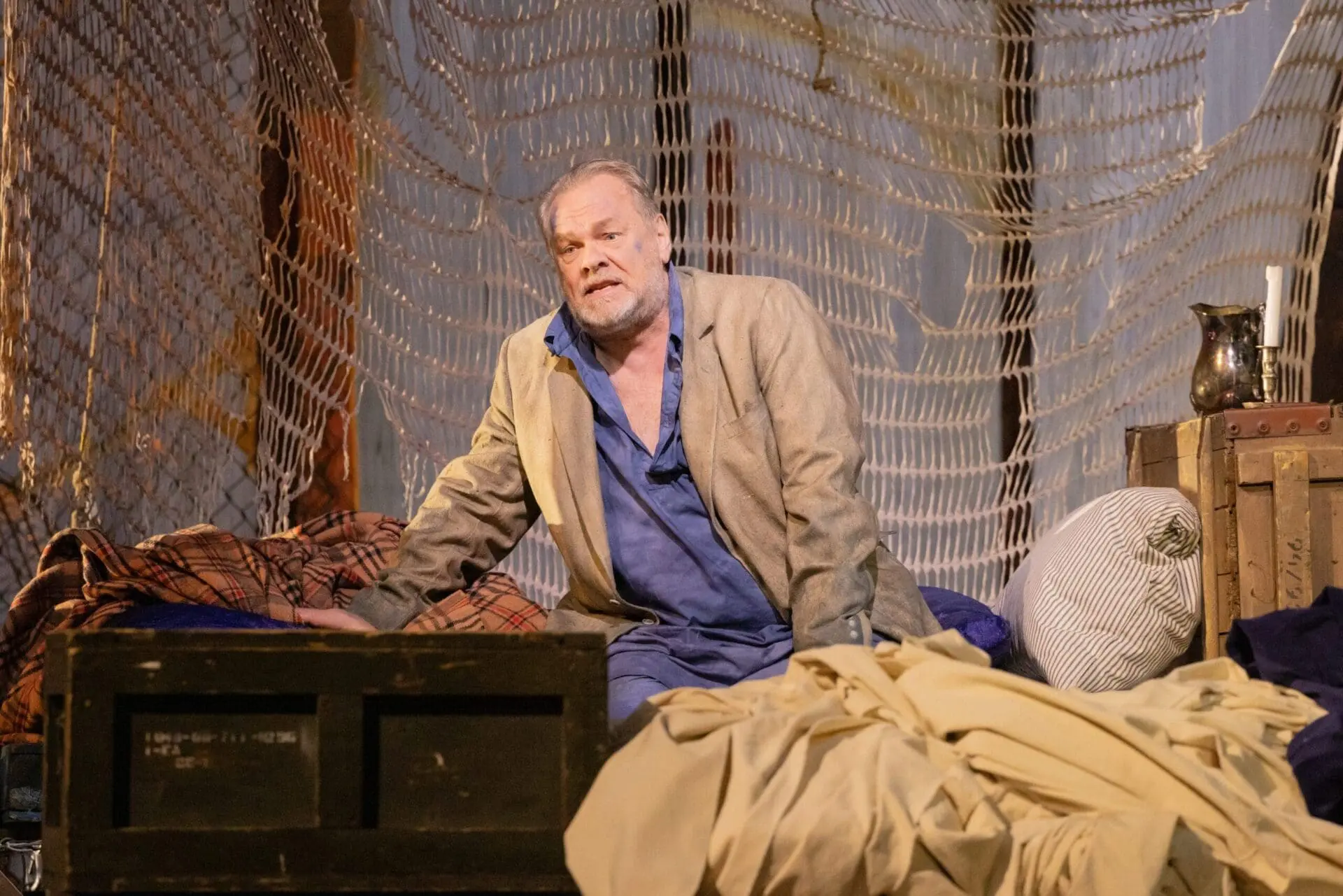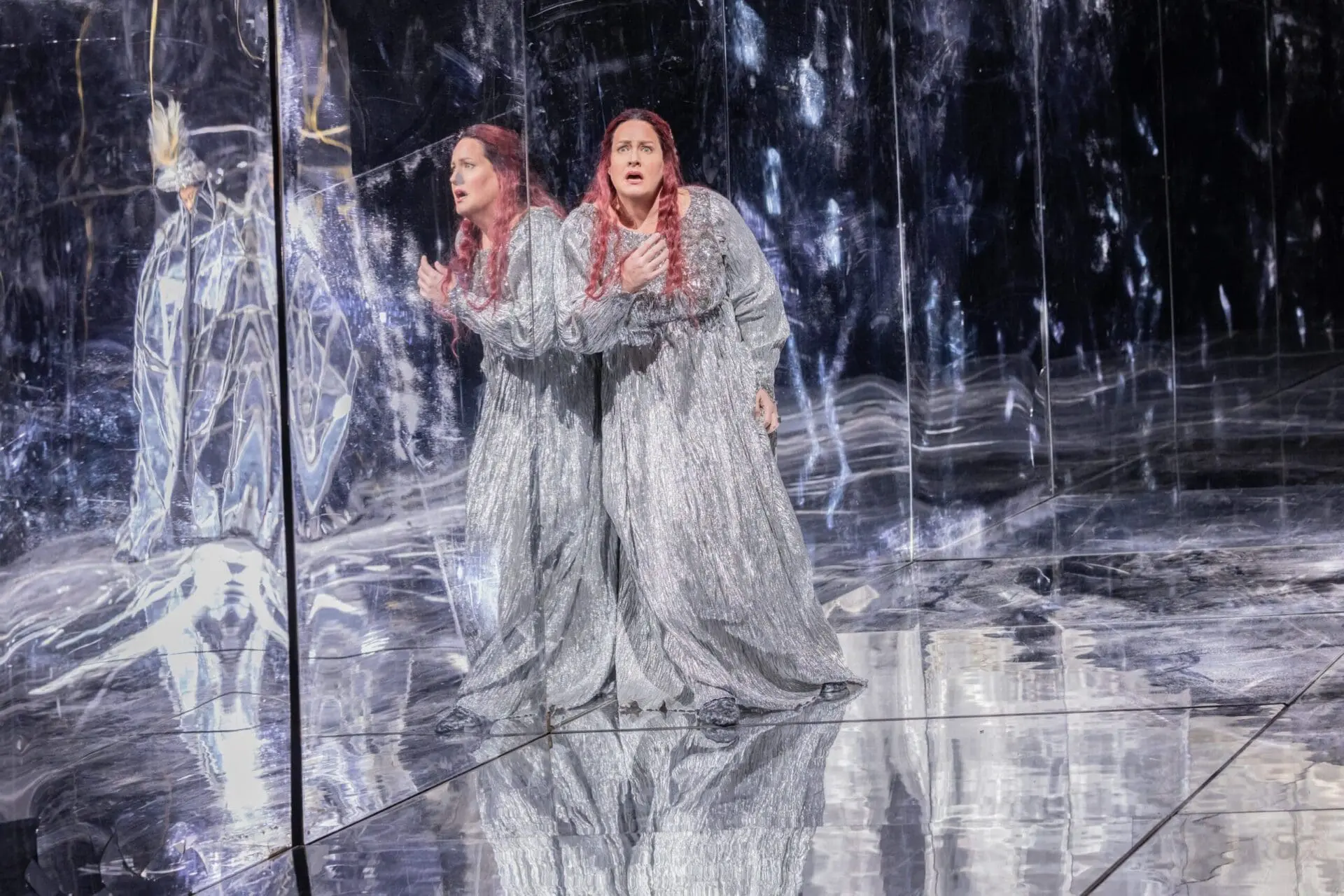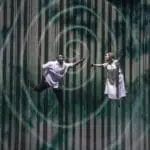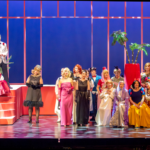Ah, the curse of a long memory and long-held affections!
The Metropolitan Opera’s current revival of Die Frau ohne Schatten is in many ways honorable, even stellar, and it makes at its best a glorious noise. But in my stubborn mind it’s competing with performances I saw 52 years ago and coming up well short!
Richard Strauss’s incandescent, deeply moving setting of Hugo von Hofmannsthal’s symbol-strewn adult fairy tale of two married couples, one lofty and one lowly (its model was The Magic Flute), has a way of seducing a susceptible listener into a lifetime of ardent devotion. From my first hearing of the old, pioneering Decca recording, on five clunky, well-worn mono LPs at my college music library, I was entranced by the sound world – worlds, really – Strauss so masterfully created, and in a near trice Frau became an obsession.
When, a month or two later, I could see as well as hear it, I was doubly seduced. That happened on opening night of the first revival of the Met’s original Frau production, which in the fall of 1966 had been the sensation of the opening weeks at the then-brand-new house at Lincoln Center. Utilizing every resource of its state-of-the-art technology, director Nathaniel Merrill and designer Robert O’Hearn took Hofmannsthal’s elaborate stage directions literally and created a magical visual counterpart to Strauss’s music. That classic staging got four more revivals before it was finally retired in 1989, looking a little weathered but with much of that magic happily intact.
Twelve years later the Met presented a big, shiny new Frau – quite aggressively shiny – in the late director/designer Herbert Wernicke’s mirrors-and-lighting-dominated staging, physically imposing but increasingly irritating over the opera’s three long acts. The action was often hard to follow on the wide expanse of the Met’s stage, with mirror images left and right and above. There was, for example, no sense of cramped intimacy in Barak’s here CinemaScopic quarters. The second act’s two big solo scenes, the Emperor’s and then the Empress’s, were seriously marred by the lack of focus. Whenever Hofmannsthal’s explicit directions didn’t suit him – as they clearly didn’t at the climax of Act Two and the start of Act Three – Wernicke simply ignored them to the distinct detriment of the drama.

Photo Credit: Evan Zimmerman/Met Opera
Michael Volle as Barak, the Dyer, in Die Frau ohne Shatten
There was scant chance that the current cast could match in combined glory the Met’s (and my) initial aggregation – Leonie Rysanek, Christa Ludwig, Irene Dalis, James King and Walter Berry – and, as a group, they didn’t come close. Individually, though, two of them shone. Elza van den Heever’s Empress was a beautiful piece of singing, steady and sensitive and replete with on-target top notes, if periodically underpowered lower down. Her projection wasn’t helped by the restless direction or by Yannick Nézet-Séguin’s occasional bursts of excess volume from the pit. She seemed fully committed to her difficult role and gave it some telling touches. Her avid “Ich will den Schatten küssen” in Act One, shows that no one is going to stop her from getting what she wants.
And as Barak, the hard-working dyer who’s at the heart of the Empress’s emotional evolution (and the only character on whom Hofmannsthal bestowed an actual name), Michael Volle – now midway into the fourth decade of his career – made even the rougher patches of his still potent Heldenbariton seem intrinsic to the warmly human character he was portraying. He was as complete a Barak as he’d been a Falstaff two seasons back.
The other three principals weren’t on that level. As the Dyer’s Wife, Lise Lindstrom acted affectingly but sang stridently. Nina Stemme, vocally heavy-handed, was surprisingly ineffectual as the plot-driving Nurse. Where was the gleeful malevolence that can make this role a delicious treat? Russell Thomas played the Emperor, and his sturdy tenor sounded as stolid and unnuanced as his presence. Where was the lyrical light and shade? In his much smaller assignment as the Spirit Messenger, Ryan Speedo Green looked imposing and sounded it, too. The many smaller roles were all neatly taken, and the children’s chorus registered delightfully.
To Nézet-Séguin belongs both credit and blame. His love for the score was palpable, and the orchestra played it magnificently. I’d never heard, in the theater, Strauss’s kaleidoscopic instrumentation presented in such arresting detail. But all the individual felicities often impeded the drama’s forward motion, as did the conductor’s penchant for slow tempi. That authoritative Straussian Karl Böhm, who conducted, over four seasons, the first 29 of the Met’s Fraus, never lost that propulsion, despite – not because of – the heavy cuts he made over the years. Nézet-Séguin, sad to say, followed the lead of latter-day Böhm. The greatest joy of the Wernicke production when it was new was that, under the leadership of the score’s greatest modern champion, Christian Thielemann, it gave New York its first unredacted Frau. That, to my mind, is the way it should always be done.
So this was a mixed bag of a Met evening. But will I go back for seconds? Sure, I will. After all, it’s still Die Frau ohne Schatten.
![FRAU_EVAN_ZIMMERMAN_3010[74]](https://operacanada.ca/wp-content/smush-webp/2024/12/FRAU_EVAN_ZIMMERMAN_301074-scaled.jpg.webp)
Photo Credit: Evan Zimmerman/Met Opera
Lise Lindstrom and Michael Volle in Die Frau ohne Schatten at the Met
Opera Canada depends on the generous contributions of its supporters to bring readers outstanding, in-depth coverage of opera in Canada and beyond. Please consider subscribing or donating today.














